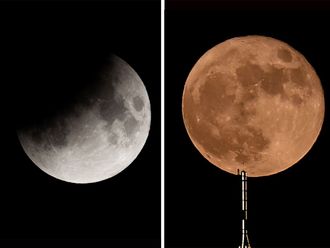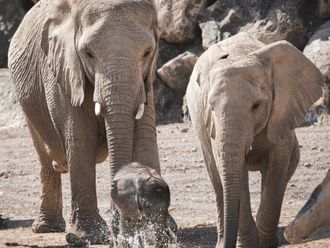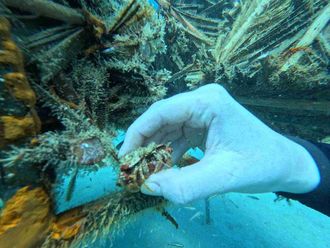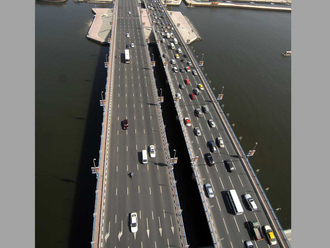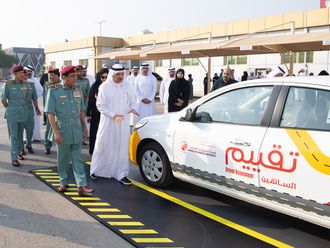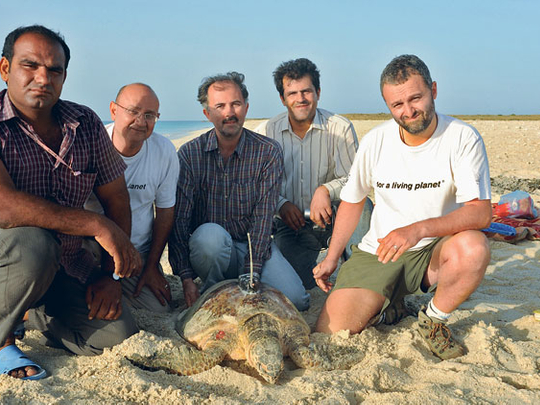
Dubai: A tagging programme has been launched as part of today's celebration of World Turtle Day, to monitor the whereabouts of about a hundred turtles in the Arabian Gulf and allow scientists to track where some of the longest living animals go.
Human activities have placed turtles under increasing pressure through habitat loss and unintentional capture in fisheries, leaving them in dire need of conservation action.
Emirates Wildlife Society-WWF has launched a three-year satellite tracking project to better understand these creatures and will focus on the endangered Hawksbill turtle, which is listed as critically endangered by the International Union for Conserving Nature Red List.
"For these highly migratory animals, today's advanced technology makes it possible to determine the turtle's surprisingly long journeys. By tracking the marine turtles through the Gulf region, we aim to raise collective awareness of their plight and to develop effective links at a regional and international level on which these nations may develop concurrent conservation agendas," said Lisa Perry, Programme Director, EWS-WWF.
Critical routes
The project will follow up to 100 post-nesting female turtles from the UAE, Qatar, Oman, Iran and Saudi Arabia. Data collected from the satellite tracking programme will be used to identify the critical overseas migration routes and habitats favoured by the turtles.
A dedicated website, www.gulfturtles.com, has been set up so the public can track the turtles during the course of the campaign. The site will display the migration patterns of the turtles, tracked via the satellite. Site visitors can also learn more about marine turtles and how they can support this project.
"These turtles depend on coastal habitats, including coral reefs for feeding and beaches for nesting at some stage of their life and this project will help us to locate these key areas in the Gulf. This will in turn help governments and conservation authorities when faced with making decisions that address coastal habitats and the marine environment," said Perry.
The project is endorsed by the Marine Research Foundation, the research partner and scientific adviser for this project, the Wildlife and Aquatic Affairs Bureau of Iran, the Environment Agency Abu Dhabi (EAD), Emirates Marine Environment Group (EMEG) and Sharjah EPAA, the Omani Ministry of Environment and Climate Affairs and the Environment Society of Oman (ESO), the Saudi Wildlife Commission and Qatar University, Ras Laffan Industrial City, and the Ministry of Environment.



